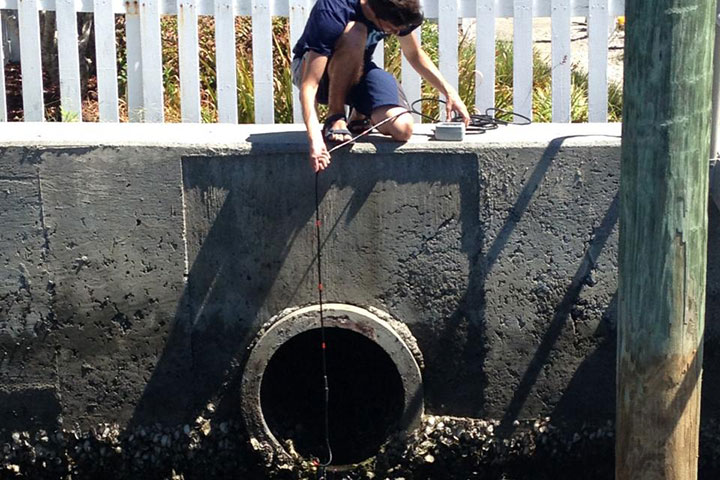Collaborative Research to Manage Stormwater Impacts on Coastal Reserves
Collaborative Research to Manage Stormwater Impacts on Coastal Reserves
Collaborative Research to Manage Stormwater Impacts on Coastal Reserves
Program: NERRS Science Collaborative
Program details » | All NERRS Science Collaborative projects »

Why this work?
Stormwater that discharges into coastal waters has negative impacts on human and ecosystem health. This runoff often results in elevated levels of bacteria, viruses, nutrients, sediment, and turbidity, which can lead to fishing and swimming closures, illnesses, and negative impacts on coastal ecosystems. The Rachel Carson Reserve is a component of the North Carolina National Estuarine Research Reserve and includes a series of islands and surrounding waters adjacent to the town of Beaufort, North Carolina. Beaufort is a historic coastal town experiencing rapidly increasing development but lagging in stormwater and wastewater infrastructure. Recent research on stormwater outfalls in North Carolina, including those discharging to the Rachel Carson Reserve, shows dramatic delivery of contaminants during storm events. However, most decision makers and stakeholders concerned with water quality are unprepared to address longterm water quality issues related to stormwater discharge.
About this project
This project will 1) quantify pathogens, nutrients, and sediment delivery to the Rachel Carson Reserve; 2) create predictive models for shellfish and recreational waters in the North Carolina Reserve by using this information, along with decades of historical data; 3) engage stakeholders and end users to prioritize management options; and 4) engage coastal decision makers, community members, K-12 students, and teachers in hands-on education on stormwater runoff and its impacts.
Project lead and contact
Dr. Rachel Noble, Institute of Marine Sciences University of North Carolina at Chapel Hill
Email: [email protected]
To learn more, view the project fact sheet (PDF).